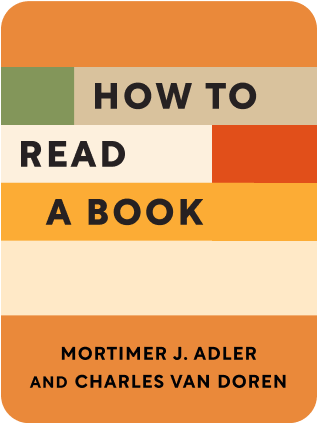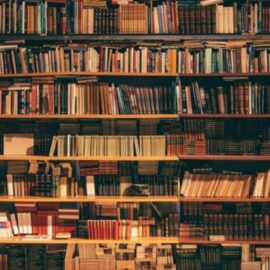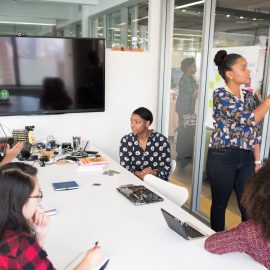

This article is an excerpt from the Shortform book guide to "How to Read a Book" by Mortimer J. Adler and Charles van Doren. Shortform has the world's best summaries and analyses of books you should be reading.
Like this article? Sign up for a free trial here .
What is the major benefit of reading? What questions should you ask yourself while you read? How do know which books you should read?
Mortimer Adler says that the reason you should read is simple: reading is learning. And to be well-read is not to have read a large number of books, but to have a high-quality understanding of good books.
Here’s Mortimer Adler’s advice on how to read better and how to choose which book to read next.
Learn While Reading
Reading is learning, with the author being your instructor.
The more active the reading, the better. Some consider reading to be passive in nature – at least, more passive than active doing or completely independent self-discovery. However, because learning is active, reading with the purpose of understanding is necessarily active.
As with live instruction, you should ask questions of the teacher; but unlike with a live instructor, you must answer those questions yourself.
In this way, instruction through reading is aided discovery. The student must herself do the learning, much like a doctor may do many things for a patient, but the patient herself must follow instructions and get well.
There are two types of reading:
- reading to gain more information. If the information is thoroughly intelligible to you, if you do not feel in over your depth, you do not improve understanding. You collect facts of the type you already know. You simply know that something is the case.
- reading to understand. Here the content is initially better than the reader. It might throw light on all the facts she already knows. You become enlightened not just to what is the case, but why it is the case, and its connection with other facts.
The second type of reading expands your understanding and increases your reading skills.
However, we don’t live in a world that’s conducive to understanding.
- Most people are not taught how to read beyond elementary school. That is, courses no longer teach how to learn more effectively by reading. This book aims to bridge this gap.
- Today the media is packaged to make thinking unnecessary. Packaged opinions are inserted into people’s minds, like a cassette in a cassette player, and the viewer pushes a button and plays back the opinion whenever it seems appropriate.
- We are inundated with facts to the detriment of understanding.
The best books challenge your reading ability and force you to grow as a reader.
To be well-read is not to have read a large quantity of books, but to have a high-quality understanding of good books.
4 Key Questions to Answer while You’re Reading
If you read for understanding, after the book, you will be able to answer four key questions:
- What is this book about as a whole?
- The leading theme, and how the author develops the theme.
- What is being said in detail, and how?
- The main ideas and assertions.
- Is the book true, in whole or part?
- You must make up your own mind, if you are reading seriously. You can’t take the book for true without critical inspection.
- What of it? Why is this important? What follows?
Ideally, you make a habit of asking these as you read. Doing this at first feels clunky, but you need to train each skill separately before doing it all subconsciously.
Treat the skill of reading like skiing. Reading is at least as complex as these acts.
- Skiing at first feels awkward and frustrating. Even though you have been on two feet all your life, suddenly putting skis on changes everything.
- Skiing is taught as separate acts (bend your knees, look down the hill, keep your back straight). Ideally, you don’t think about the separate acts, instead integrating it into smooth movements. But to forget them as separate acts, you have to learn them first as separate acts.
Any experienced learner knows that she shouldn’t fear rules at the beginning of something new. After mastery, they coalesce and can be done automatically. Reading for real understanding is the same way.
Techniques to Understand a Book
We’ll cover far more suggestions on how to read well, but here are quick tips:
- Underline or highlight major points
- Mark the 10 most important statements or passages in the book
- Write numbers in the margin to indicate a sequence of points to develop an argument
- Refer to other pages in the margin
- Write in the margin to record questions
- After finishing the book, outline the content of the book
What Books to Read
The vast majority of books will not strain your ability to read analytically. They deliver information that fits your current framework, or are read for entertainment.
There is a second class of books that teach you both how to read and how to live. This might be fewer than one out of every hundred, or one out of every thousand.
There is a final highest class of books, perhaps fewer than a hundred, that you can return to over and over again, and on your return they seem to have grown with you. You see new things in it that you did not see before. You should seek out these books, for they will teach you the most.
To identify these books, you might consider the desert island question – which 10 books would you take with you if you could never read any book ever again? These differ between humans, and you should start with the classics that interest you the most.
(The authors include books ranging from Homer’s Odyssey and Aristotle’s Ethics, to da Vinci’s Notebooks and Shakespeare’s works, to Einstein’s works on relativity and Jame Joyce).

———End of Preview———
Like what you just read? Read the rest of the world's best book summary and analysis of Mortimer J. Adler and Charles van Doren's "How to Read a Book" at Shortform .
Here's what you'll find in our full How to Read a Book summary :
- How to be a better critic of what you read
- Why you should read a novel differently from a nonfiction book
- How to understand the crux of a book in just 15 minutes






